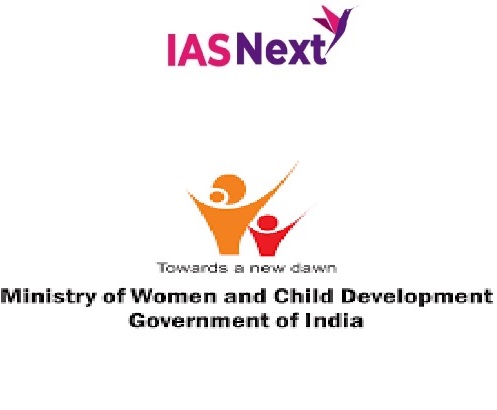CURRENT AFFAIRS
Get the most updated and recent current affair content on Padhaikaro.com
Centre proposes stricter regulations for CWC
- IAS NEXT, Lucknow
- 30, Oct 2021

The Ministry of Women and Child Development has proposed the draft amendments to Juvenile Justice Model Rules, 2016.
- This follows the passage of the Juvenile Justice (Care and Protection of Children) (JJ) Amendment Bill, 2021, in Parliament.
As per the proposed amendments:
- Individuals who receive foreign aid in their personal capacity or as members of an organisation will not be eligible for the membership of Child Welfare Committees (CWCs).
- The central adoption agency CARA will be empowered to issue No Objection Certificates (NOC) for adoptions by NRIs and OCIs.
Overview of the Juvenile Justice (Care and Protection of Children) Amendment Bill, 2021:
- The District Magistrates have been further empowered under the Act to ensure its smooth implementation, as well as garner synergized efforts in favour of children in distress conditions.
- It means that DMs and ADMs will monitor the functioning of various agencies under the JJ Act in every district- including the Child Welfare Committees, the Juvenile Justice Boards, the District Child Protection Units and the Special Juvenile Protection Units.
- The DM will also carry out background checks of CWC members, who are usually social welfare activists, including educational qualifications, as there is no such provision currently.
- The DMs are also to check possible criminal backgrounds to ensure that no cases of child abuse or child sexual abuse are found against any member before they are appointed.
- The CWCs are also to report regularly to the DMs on their activities in the districts.
- Serious offences will also include offences for which maximum punishment is imprisonment of more than seven years, and minimum punishment is not prescribed or is less than seven years.
- Instead of the court, the District Magistrate (including Additional District Magistrate) will now issue adoption orders.
Child Welfare Committees:
- As per the Section 27(1) of Juvenile Justice (Care and Protection of Children) Act, 2015 (JJ Act), Child Welfare Committees (CWCs) are to be constituted by State Government by notification in the Official Gazette for every district, for exercising the powers and to discharge the duties conferred on such Committees in relation to children in need of care and protection under JJ Act, 2015.
- Composition of the committees: The Committee shall consist of a Chairperson, and four other members as the State Government may think fit to appoint, of whom atleast one shall be a woman and another, an expert on the matters concerning children.
- Eligibility conditions: As per Rule of the Juvenile Justice (Care and Protection of Children) Model Rules, 2016 framed under JJ Act, 2015 Chairperson and the members shall be above the age of thirty-five years and shall have a minimum of seven years of experience of working with children in the field of education, health, or welfare activities, or should be a practicing professional with a degree in child psychology or psychiatry or social work or sociology or human development or in the field of law or a retired judicial officer.
- The primary responsibility of execution of the Act and Rules lies with the State/UTs.
What is the Juvenile Justice (Care and Protection of Children) Act, 2015?
The Act was introduced and passed in Parliament in 2015 to replace the Juvenile Delinquency Law and the Juvenile Justice (Care and Protection of Children Act) 2000.
- It allowed the trial of juveniles in conflict with law in the age group of 16-18 years as adults, in cases where the crimes were to be determined.
- The nature of the crime, and whether the juvenile should be tried as a minor or a child, was to be determined by a Juvenile Justice Board.
- It received impetus after the 2012 Delhi gangrape in which one of the accused was just short of 18 years, and was therefore tried as a juvenile.
- The Act streamlined adoption procedures for orphans, abandoned and surrendered children and the existing Central Adoption Resource Authority (CARA) has been given the status of a statutory body to enable it to perform its function more effectively.